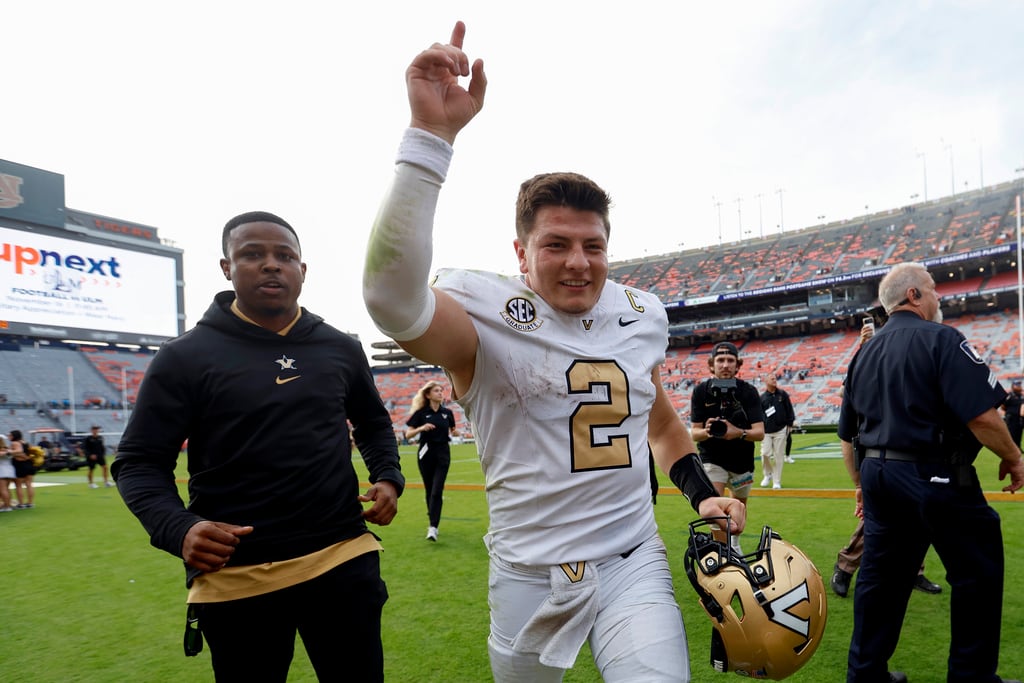Even though the NCAA’s Division I board of directors approved a waiver permitting athletes in a comparable circumstance to the Vanderbilt quarterback to compete in 2025–2026, the NCAA on Monday appealed the preliminary injunction issued by a U.S. federal judge that awarded Diego Pavia an additional year of eligibility.
He was likely to prevail in his claim that NCAA Division I eligibility criteria discriminated against him under the Sherman Act during his two years at a junior college, according to U.S. District Judge William L. Campbell, who issued the injunction on December 18 and limited it to Pavia alone. For Pavia’s fifth season, the judge also ordered the NCAA to refrain from taking any action against Vanderbilt or any other university he plays for.
The NCAA appealed Campbell’s order and injunction to the Cincinnati-based 6th U.S. Circuit Court of Appeals.
The waiver, which was also issued on Monday, should prevent other athletes who began their careers at a junior college from suing for another season in order to obtain opportunities to use their names, images, and likenesses.
In particular, the NCAA stated that if student-athletes who attended and competed at a non-NCAA school for one or more years would have otherwise used their final season of competition during the 2024–25 academic year and meet all other eligibility requirements (such as progress toward degree, five-year period of eligibility), the board will waive the requirement, allowing them to compete in 2025–26.
Last June, the Division I Board of Directors and Division I Council approved an eligibility review aimed at developing a long-lasting structure that can stand up to scrutiny.
According to the NCAA statement, the review has already led to steps to modernize collegiate sports. All facets of student-athlete eligibility are covered in the evaluation, and Division I is dedicated to advancing the conversation at the January governance meetings.
Ironically, Nashville, Tennessee will host the annual NCAA convention from January 14–17.
According to existing NCAA guidelines, Pavia is not allowed to play Division I football in 2025 because the quarterback began his career at a junior college, as Campbell pointed out last week.
The NCAA’s arguments on Division I eligibility, which restricts athletes who begin at junior colleges to three or four years, did not convince the judge, he wrote. Even when prep school athletes compete athletically against junior colleges or other schools that are considered collegiate institutions, he pointed out that the NCAA does not begin the eligibility clock for them.
Campbell also detailed the evolution of the NCAA’s eligibility regulations, from the prohibition on freshmen to the introduction of the redshirt rule. The organization’s policies restricting junior college eligibility constitute trade restrictions with significant anticompetitive effects, the court added, so Pavia has a good chance of winning the case under the Sherman Act at trial.
On November 8, Pavia filed his complaint in Nashville’s U.S. District Court for the Middle District of Tennessee, requesting an extra season. In addition to playing for the Commodores (6-6) against Georgia Tech on Friday, he has applied to Vanderbilt’s master’s degree in legal studies, which will begin in January.
Latest Ducks news
-
First look: Ohio State vs. Oregon Rose Bowl predictions, picks and best bets
-
Sabrina Ionescu is joining Unrivaled as the new 3-on-3 league s final player
-
Bill Oram s Big 10*: A rematch with Ohio State was inevitable, but a second win isn t as certain
Note: Every piece of content is rigorously reviewed by our team of experienced writers and editors to ensure its accuracy. Our writers use credible sources and adhere to strict fact-checking protocols to verify all claims and data before publication. If an error is identified, we promptly correct it and strive for transparency in all updates, feel free to reach out to us via email. We appreciate your trust and support!
